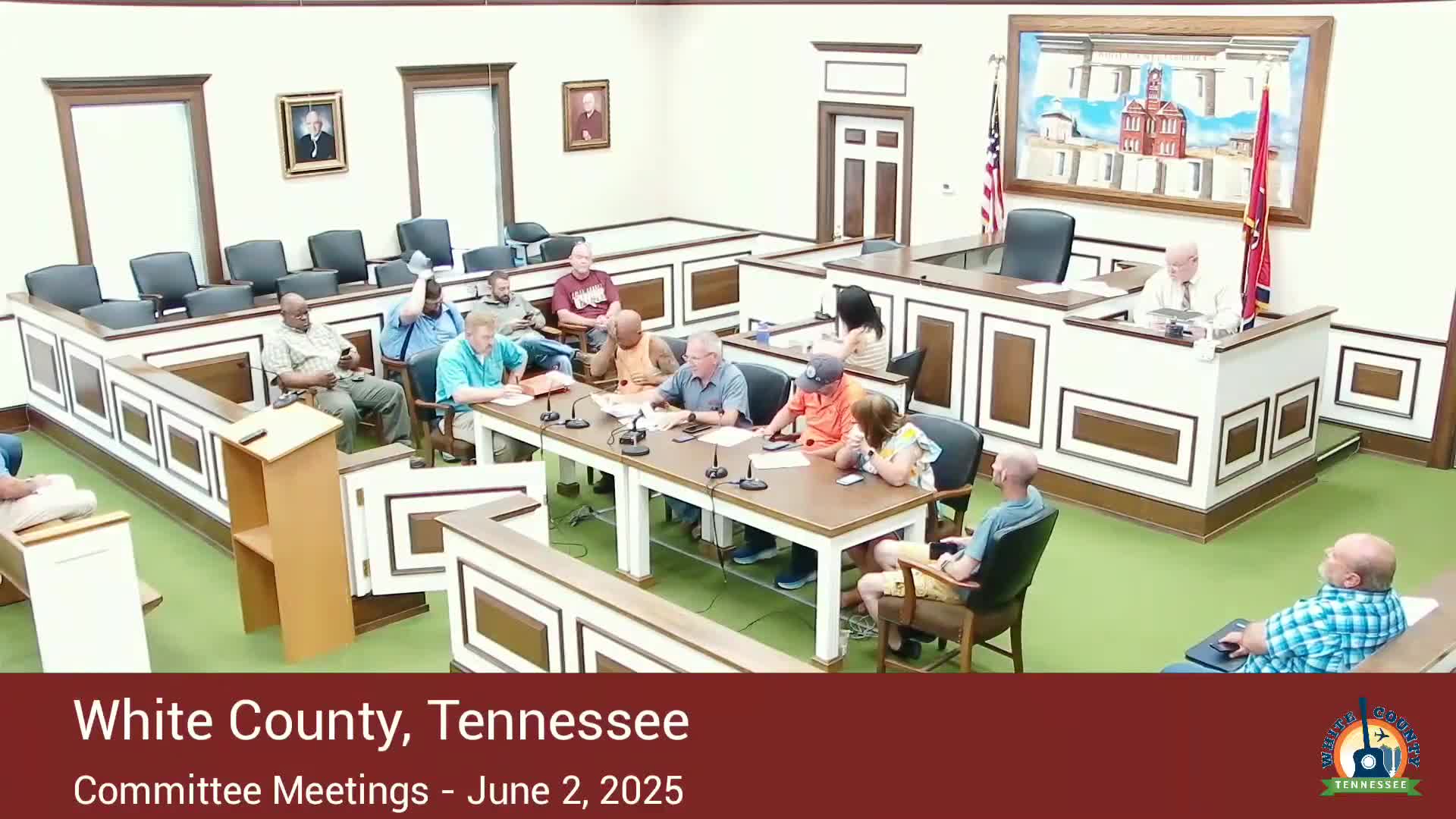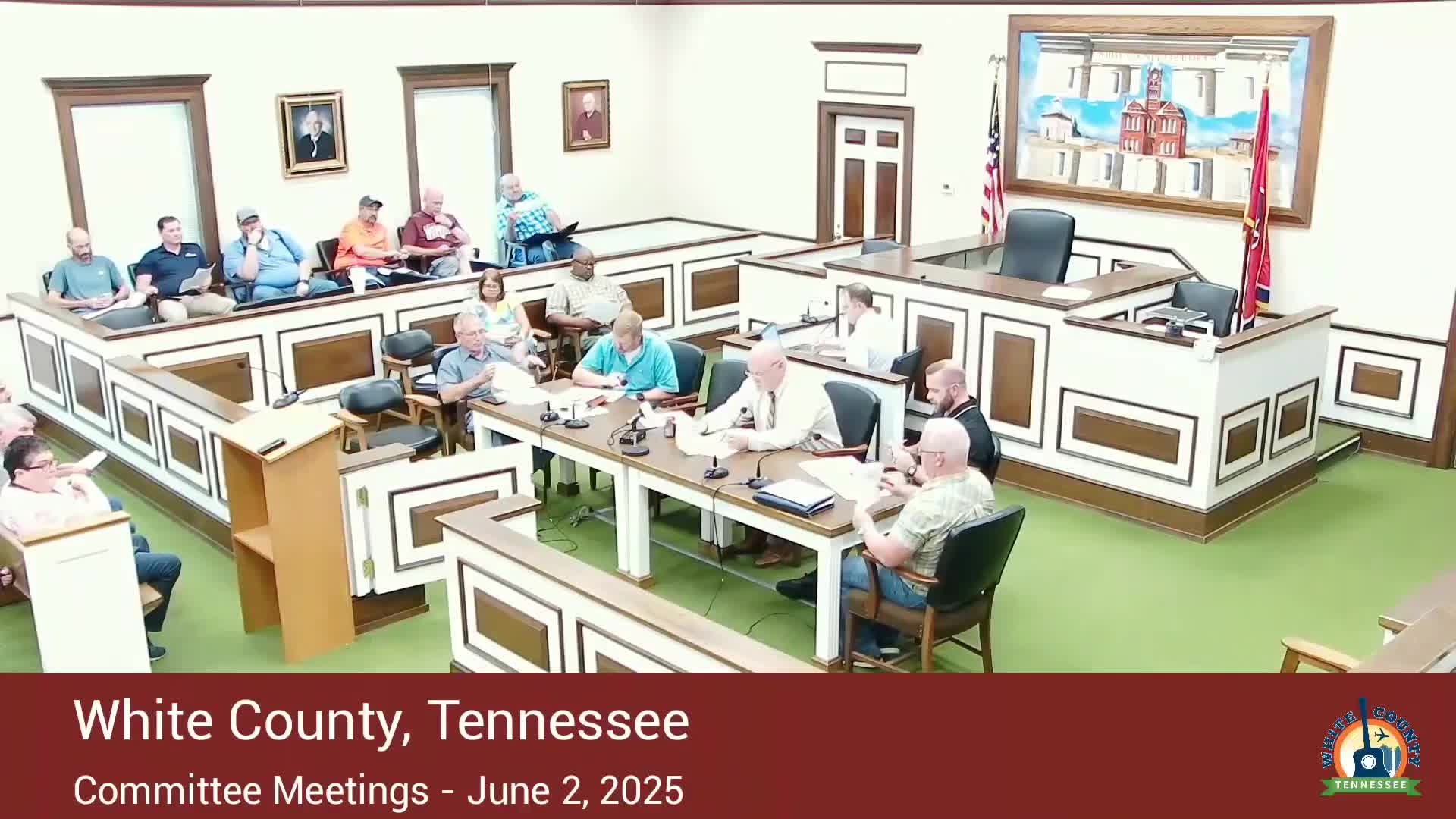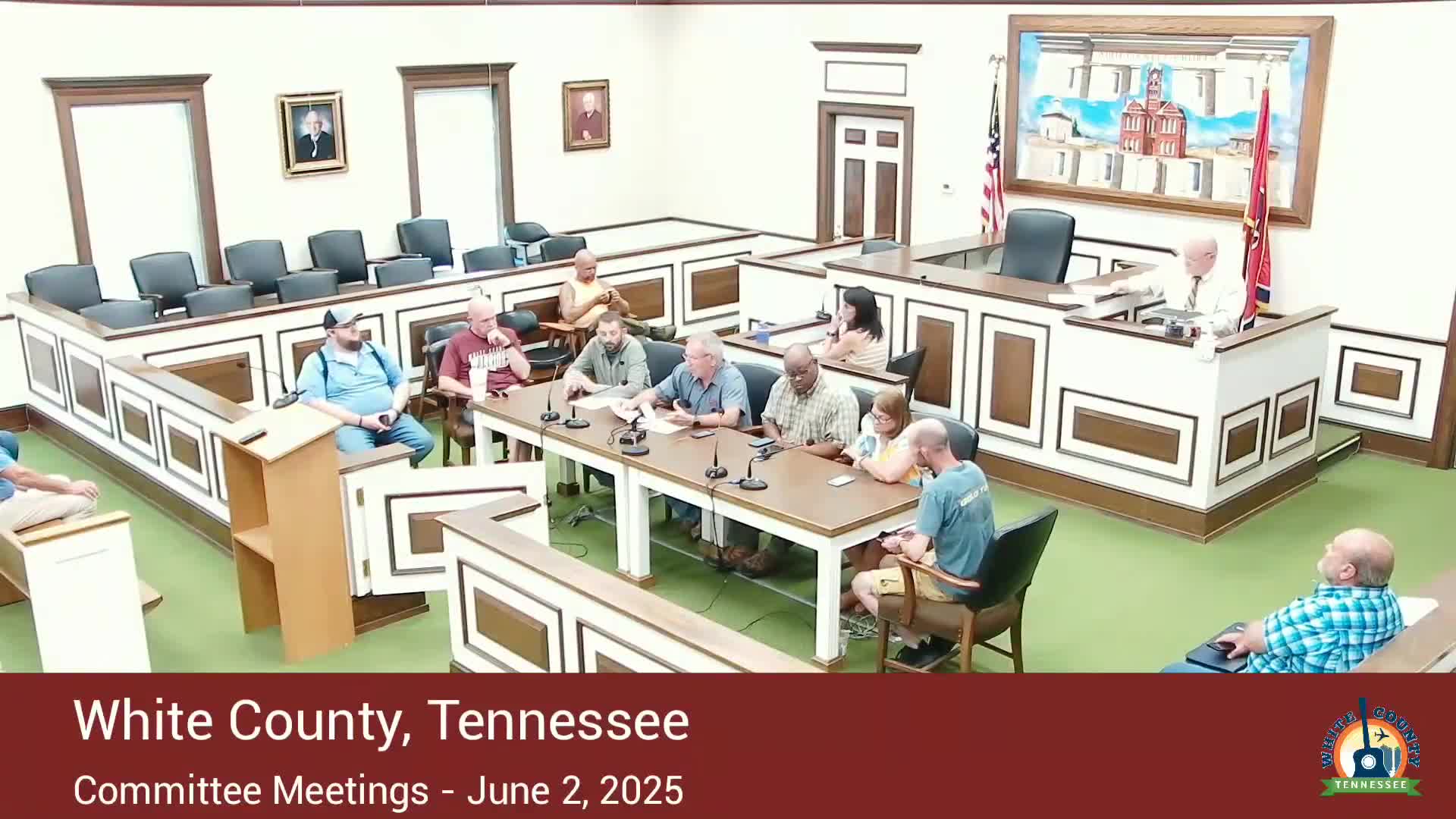Article not found
This article is no longer available. But don't worry—we've gathered other articles that discuss the same topic.

Votes at a glance: White County committees forward road adoption, fee and severance tax items to full court

White County budget committee sends $1.57 proposal to full commission after contested vote

